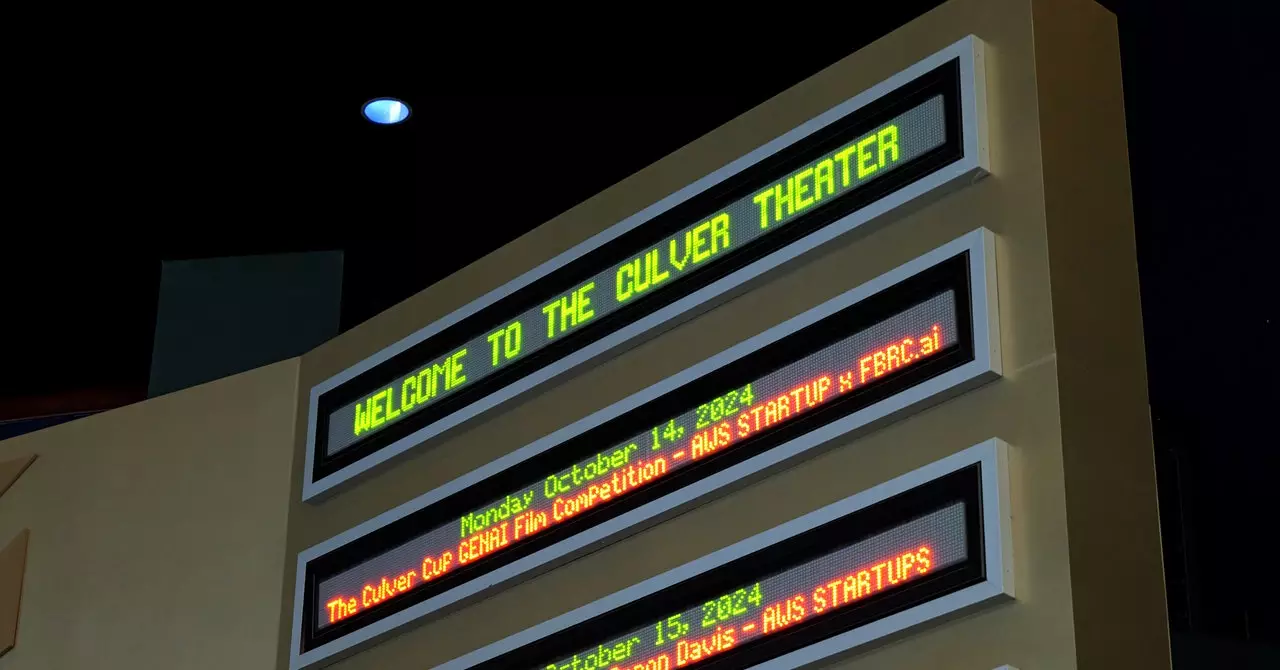Over the last few years, technology has reshaped numerous industries, but none quite like filmmaking. The introduction of generative artificial intelligence (AI) has started to influence storytelling techniques, raise ethical concerns, and redefine the relationship between creators and their audiences. As we transition into this new digital frontier, the core essence of storytelling remains unchanged, yielding to the notion that the fundamentals of narrative construction must persist even as tools evolve. The crux of effective movie-making resides not solely in the technology employed, but rather in the emotional connections forged through storytelling.
Take, for instance, the short film “Mnemonade,” created by Meta Puppet. In this piece, the emphasis on emotional resonance plays a pivotal role: it dives into themes of memory and loss. Meta Puppet’s use of cutting-edge AI tools from ElevenLabs demonstrates how technology can enhance the storytelling process but underlines the fact that emotion must remain at the narrative’s core. The creators behind AI films face an uphill battle where their work must transcend mere visual spectacle to achieve true mainstream acceptance. Even with remarkable advancements in AI-driven dialogues, the stories must evoke genuine emotional responses to resonate with the audience.
As young filmmakers navigate the terrain shaped by these new technologies, they encounter skepticism, especially from traditional Hollywood studios wary of potential legal repercussions and financial risks. A competitor of Meta Puppet, Maddie Hong, articulates these concerns, emphasizing the unpredictable nature of copyright infringement that can arise in the generative space. This apprehension is not without merit; the film industry has established strict standards regarding continuity and intellectual property rights. These elements are crucial for large productions that not only require continuity over multiple screens but must also navigate a web of existing copyright laws.
However, even amidst this caution, industry experts see a silver lining in AI technologies. Luma cofounder Amit Jain argues that generative AI could usher in a period of enhanced flexibility within the traditional studio framework. Revisiting the patterns of contemporary Hollywood, one sees that the majority of substantial productions favor established franchises, opting for familiar formulas over creative risks. While safer, this approach limits the industry’s potential for innovation and freshly conceived narratives. Jain posits that by enabling lower-budget initiatives to thrive, generative AI could allow for a wider array of voices and stories to emerge, fostering a more diverse cinematic landscape.
Despite the optimism surrounding new creation avenues, a broader conversation about employment in the film industry looms large. Contrary to Jain’s hopeful assertions, recent research paints a different picture, with reports indicating that a substantial portion of entertainment industry professionals believe generative AI has led to job reductions in various departments. The creative fields are transformative by nature, yet the same technologies meant to streamline production can prompt displacement rather than expansion. While many visual effects artists see promise in AI tools to ease the burdens of modern filmmaking, questions surrounding job security and ethical employment practices remain persistent concerns.
Ultimately, success in this evolving landscape may hinge less on the tools themselves than on the creators’ ability to adeptly harness these innovations. A comparison drawn by Meta Puppet likens generative AI to the piano; it is a platform everyone can access, but mastery is a different matter entirely. The distinction between an average product and a masterpiece lies in the skill, dedication, and, most importantly, the narrative insight of the creator. The most meaningful works will emerge from those who wear multiple hats, blending technical prowess with deep-rooted storytelling instincts. AI will undoubtedly reshape the cinematic landscape, but those who can navigate this intersection of technology and emotion will hold the key to creating narratives that captivate and endure in the hearts of audiences.
As generative AI continues to carve its place in filmmaking, the most pressing questions revolve around balancing innovation with tradition, confronting ethical dilemmas, and ensuring that storytelling—at its heart—remains a profound exploration of the human experience.


Leave a Reply
You must be logged in to post a comment.